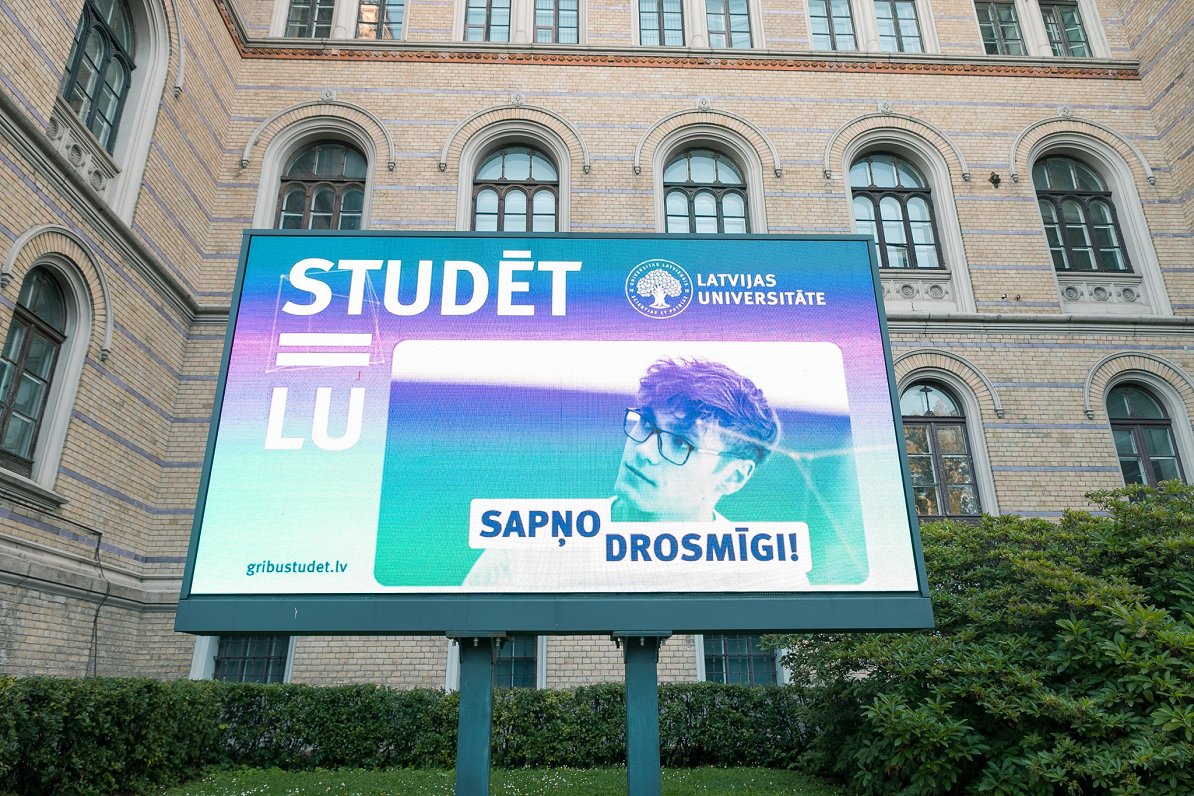Representatives of universities interviewed by Latvian Radio say that the education obtained in our country is internationally competitive, and it is the main magnet for foreigners.
Last year, more than 10,000 foreign students studied at Latvian universities, and in the new academic year, several hundred foreigners will take their first steps in Latvian higher education institutions.
Baiba Pētersone, director of the Department of International Relations at Riga Stradiņš University (RSU), said that the whole world is represented among foreign students.
"Foreign students are about a third or 28% of the total number of students. This would be roughly just under 3,000. In total, we have students from 80 countries, from all regions of the world," said Pētersone. "More than 400 new foreign students are joining us this semester."
Pētersone explained that the number of foreign students is stable with a slight tendency to increase. The most popular course at RSU is the medical study program, followed by dentistry.
"Of course, more foreign students can be admitted if we think about opening new study programs, especially in social sciences," said Pētersone. "It may not be [just dependent upon] the capacity of RSU, but also the capacity of Latvian hospitals, because, of course, the practical, clinical element is also a very important for students, especially in medicine and other healthcare sectors."
The number of foreign students has also increased in other universities surveyed by Latvian Radio. Interest has increased at the University of Latvia (LU), said Kristīne Strada-Rozenberga, vice-rector of studies at LU.
"This year, the interest was even greater than in previous years, and more than 2,000 applications were received. The increase in the number of applications is 30%, which is quite significant, but more than 300 students have passed all entrance tests of this competition," said Strada-Rosenberga. "They have the right to start [studies], but due to various circumstances, some may change their mind."
Strada-Rosenberga said that LU is still checking the documents submitted by several students. "We are checking both their educational documents – whether and what level of education has been obtained – and also visa issues."
At the University of Latvia, foreigners make up about 7% of the total number of students.
"Our goal is not to attract any student and any foreigner, but students who are really interested in studies, who are not hunters for residence permits, but whose primary goal is to really study and get an education, who are ready to invest in it," emphasized Strada-Rosenberga.
The export of education is also an important consideration at Riga Technical University (RTU), where more than 1,000 foreign students will start their studies this year, while the total number of foreigners at RTU is approaching 5,000, said Zane Purlaura-Poriņa, director of the International Cooperation Department of RTU.
"Of course, Asia is traditionally represented. We also have quite a large number of students from Europe. We also see students from Latin America. There are also North American students here," Purlaura-Poriņa said.
Demand is provided by the wide range of RTU study programs and the opportunity to obtain a competitive education in Latvia, said Purlaura-Poriņa.
"Students, of course, also take into account the cost factor, but at the moment, looking at what means of subsistence are needed and how much the studies themselves cost, we are quite equal to our neighbors in Central Europe," said Purlaura-Poriņa.
All university representatives interviewed by Latvian Radio reveal that they do not compete with each other to attract foreign students, as much as with higher education institutions based elsewhere in Europe.
"This trend that foreign students choose to study in Latvia confirms the quality of education. If the diploma, the provided knowledge, skills, competences and the issued diploma were not valuable, then the students would not choose to get it," said Strada-Rozenberga.
The contribution of foreign students to higher education institutions also has several benefits, RSU representative Baiba Pētersone said, not least of which is that students from other countries also contribute to the national economy of Latvia.
"It also increases the university's international competitiveness. Of course, it brings well-deserved funds to the university," Peterson said. "These people stay in Latvia for five or six years. They shop, participate in cultural and entertainment events, travel around Latvia. They have relatives and friends who use hotel services. There is another very important element – these students have direct experience in Latvia, and that puts Latvia on the international tourism map."
Foreign students also help raise the international profile of the country and are able to tell others of their experiences in Latvia once they have completed their education – hopefully with many positive memories and a desire to return.



























